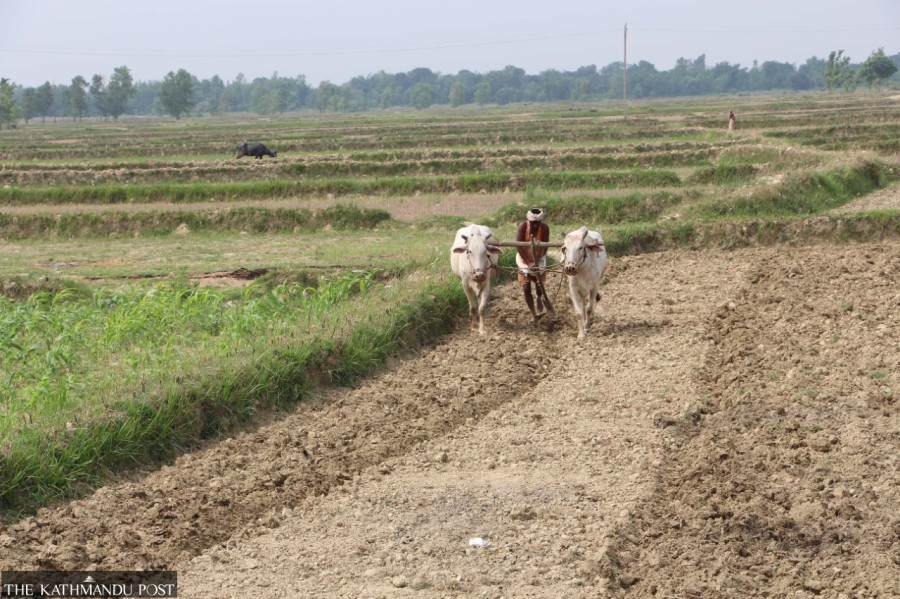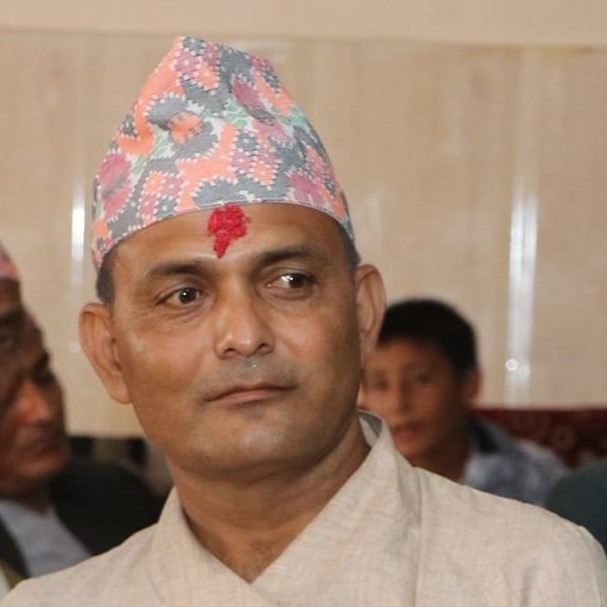Money
Farmers scramble for fertiliser as planting season fades
A global shortage of nitrogen fertiliser is driving up prices to record levels, prompting countries like Nepal to delay imports.
Binod Bhandari
Farmer Nir Bahadur Parajuli of Kanepokhari, Morang has been making the rounds of different agriculture cooperatives for weeks to buy chemical fertiliser which he urgently needs to plant his winter crops.
Only farm cooperatives are authorised to deal in government subsidised fertiliser, and Parajuli is desperate because it is the sowing season.
He needs two 50 kg sacks of diammonium phosphate (DAP), which is the world's most widely used phosphorus fertiliser, to apply on his 1 bigha field where he plans to grow mustard. He is deeply worried he might miss the sowing period.
The winter crop sowing season technically is linked with the timing. Farmers have to plant and harvest crops at the right time, experts say.
In Nepal, farmers mostly sow wheat, mustard and pulses, the major winter cash crops. The sowing period begins in October. Parajuli has prepared the land, but he can't sow mustard on his field without the vital plant nutrients.
“I managed to get 25 kg of fertiliser. And with this amount, I managed to sow mustard on 5 katthas of land. The other 15 katthas of my farm is still uncultivated.”
A global shortage of nitrogen fertiliser is driving up prices to record levels, prompting countries like Nepal to delay imports of the farm inputs. As the government controls the chemical fertiliser market, this year there is a risk that farmers would not get the crop nutrients before the planting season.
Gajendra Bhattarai, another farmer of Hoklabari, has 2 bighas of land uncultivated due to lack of chemical fertiliser. He plans to sow mustard and needs four sacks of DAP.
Rudra Bhattarai of Aamtola, Rangali, who owns 2 bighas of land, is similarly distressed.
Thousands of farmers across the country have prepared their fields for the winter crops but there is no adequate fertiliser which has become a familiar story.
Jit Bahadur Khadka of Barju rural municipality in Sunsari used smuggled fertiliser brought from the Indian market, and applied it on his field. But he is concerned about productivity as the contraband is of poor quality.
“As fertiliser was not available in the local market, I was compelled to buy it from border markets in India,” he said. “The quality of the product is substandard, but I don’t have any alternative.”
Rajendra Upreti, spokesperson for the Province 1 Agriculture Ministry, said that due to low supply, a shortage of farm inputs has appeared this winter. The province's requirement of chemical fertiliser is 8,000 tonnes for mustard crops.
But state-owned Agriculture Inputs Company, which is the sole importer of chemical fertiliser in the country, has allocated only 4,500 tonnes for Province 1. “As a result, farmers are scrambling for fertiliser.”
Fertiliser dealers have started rationing it because of the shortage. One person is allowed to buy only 25 kg of chemical fertiliser. But in many places, the essential plant nutrient is not available.
Navaratna Gautam, chief of the Biratnagar office of Agriculture Inputs Company, said only a shipment of 1,200 tonnes has been delivered out of the quota set aside for Province 1. “We are not able to supply the fertiliser as per the demand.”
Gautam said that the shortage has appeared due to the rise in the prices.
According to reports, prices of diammonium phosphate jumped by a steep 80 percent in November compared to the same period last year. The global average price of diammonium phosphate in November averaged $825 per tonne, up $375 per tonne from November last year.
Global nitrogen fertiliser sales were worth $53 billion in 2020, and prices are at least 80 percent higher so far this year.
The price of urea soared by 140 percent year-on-year in November. The average price of urea is currently $859 per tonne in the global market, a rise of $500 in a year. The price increase partly reflected higher input costs, especially energy, as prices of several energy benchmarks have doubled since May last year.
According to the Agriculture Ministry, Nepal's annual requirement of chemical fertiliser currently stands at more than 700,000 tonnes while imports amount to just around 300,000 tonnes.
Subsidised fertiliser fulfils 40 percent of the country’s total requirement while the rest is met by informal imports or shipments smuggled across the open border with India.




 8.67°C Kathmandu
8.67°C Kathmandu














